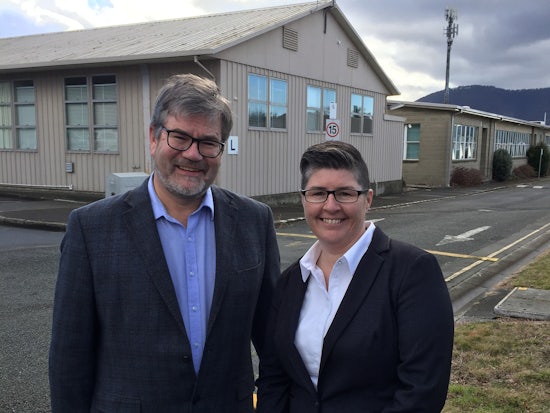Tasmania to be home to Australia’s first dementia village
Ground-breaking plans for Australia’s first suburban dementia village; designed to recreate real life experiences for those living with dementia have been unveiled

Designs allow residents to feel at home and wander freely (Source: Font PR)
The $25 million concept, derived from a partnership between Glenview Community Services, HESTA, Social Ventures Australia, and assistance from the Commonwealth Government, targets Tasmania as the fastest ageing population in the nation and dementia, which is now the country’s second leading cause of death, with the proposed facility in Korongee, in the Tasmanian suburb of Glenorchy.
Designed to feature aspects of a ‘typical Tasmanian cul-de-sac streetscape’ that allows residents to feel at home and wander freely, Glenview Chairman Ian Weir says the Korongee facility will be the first of its kind in Australia to offer this proven and cutting edge model of care.
“In essence Korongee will create an authentic suburban village environment for those living with dementia, with 15 demographically tailored homes set within a small town context complete with streets, a supermarket, cinema, café, beauty salon and gardens,” he says.
“The Korongee village concept draws on a range of international best practice models, particularly the dementia village of De Hogeweyk in the Netherlands while contextualising this into a uniquely Tasmanian experience.”
The De Hogeweyk concept has shown that their residents in the dementia village live longer, eat better, take fewer medications and Mr Weir says that he hopes to see similar transformative health benefits at Korongee.
“Korongee’s design will make it possible for residents living with dementia to walk around the village and participate in everyday life decisions which are presently not available to those in dementia care,” he says. “Activities such as going to the café to buy a coffee or simply heading to the supermarket to buy groceries for dinner.”
In addition to the cultural services hub, Korongee will consist of 15 houses, each with six bedrooms, which will be staffed by health professionals who dress casually and will act as ‘home makers’ to provide an authentic home-like environment.
To assist with design, décor, and which house and lifestyle profile each resident is most suited to within the village, the University of Tasmania is stepping in to conduct demographic research to inform on what makes up the most common elements of a Tasmanian lifestyle.
Glenview CEO Lucy O’Flaherty says people living with dementia often struggle with unfamiliar spaces colours and even décor, which is why she says each house will be designed to create familiar cultural touchstones of Tasmanian suburban life.
“Creating an authentic environment is the key to this cutting edge model, with residents within each house to be matched by their similar backgrounds, experiences, interests and skills,” she says.
“At Korongee we won’t have any institutional routines – residents will be allowed to wake up and move about their day in their own time and in freedom. If they want to make themselves a piece of toast in the middle of the night, they can do that.
“For example, a person who has worked as a tradesman all their life will most likely have a routine involving an early start and knocking off at 3pm. Alternatively, at the other end of the spectrum artists or creative folk who may rise later and have later evenings and weekends that are highly social – two lifestyles not necessarily conducive to each other.”
The facility is set to provide significant economic benefits to the area by creating a number or jobs both during and after construction, and consultation with the local community is now in place.
“We are currently in conversation with the local community to seek their input and feedback into the concept and we look forward to continuing this conversation throughout development and construction of the project,” she says.
“Once complete, the broader community will be encouraged to visit the village to enjoy the gardens, use the supermarket, visit the beauty salon, watch a movie at the theatre or have a coffee in the café.”
Construction on the facility is expected to begin in early 2018 with $19 million in funding coming from investing company HESTA and additional funding from the Commonwealth Government. Site completion is expected for mid to late 2019.






















